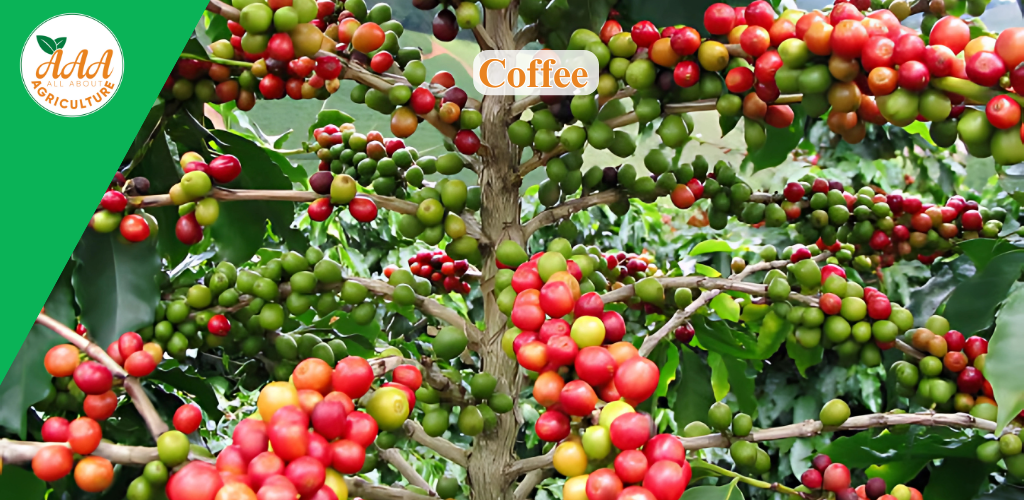Coffee Prodution Technology
Coffee Prodution Technology

Coffee is one of the world’s most valuable crops, requiring precision farming, climate-smart techniques, and sustainable practices to ensure high yield, rich flavor, and quality beans. With modern coffee production technology, farmers can boost productivity while preserving the environment.
Ideal Climate & Soil Conditions
Temperature: Coffee grows best in 18°C to 24°C for Arabica and 24°C to 30°C for Robusta. Temperatures above 32°C can lower bean quality.
Rainfall: Requires 1,200–2,500 mm annually, depending on the variety.
Altitude: 800-2,200 meters above sea level provides the best flavor.
Soil: Prefers well-drained volcanic or loamy soil with a pH of 5.5 to 6.5.
Seed Selection & Nursery Management
High-yielding, disease-resistant varieties improve crop success.
Shade-grown coffee prevents heat stress and enhances flavor.
Automated irrigation in nurseries ensures healthy seedling growth.
Land Preparation & Plantation Establishment
Terracing on slopes prevents soil erosion in hilly areas.
Cover crops & organic manure improve soil health.
Plant Spacing: 2.5m x 2.5m for Arabica, 3m x 3m for Robusta.
Smart Irrigation & Water Management
Drip & micro-sprinkler irrigation optimize water use.
Mulching with organic waste conserves soil moisture.
Fertilization & Nutrient Management
NPK Application: Nitrogen for growth, Phosphorus for root strength, Potassium for bean quality.
Bio-fertilizers & compost enhance soil fertility sustainably.
Foliar sprays (Zinc, Magnesium, Boron) improve bean development.
Pest & Disease Control
Common threats: Coffee Berry Borer, Leaf Rust, Coffee Wilt Disease.
Integrated Pest Management (IPM) – Use of natural predators & organic pesticides.
Harvesting & Post-Harvest Processing
Hand-picking or mechanical harvesting ensures high-quality beans.
Processing Methods:
- Wet Processing – Produces cleaner, brighter coffee.
- Dry Processing – Enhances body and complexity.
- Honey Processing – Retains natural sweetness.